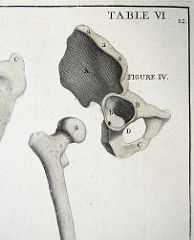
There are no guarantees in life – isn’t that the truth? I’ve been thinking about this a lot lately and keep coming to the same conclusion. As much as I’d like to be able to guarantee a certain outcome, in life you just can’t do that. The reason I bring this up is because I’ve seen several professionals lately claiming to guarantee to resolve back pain, neck pain, headaches,…the list goes on. In the beginning I wasn’t too bothered by the concept, because who knows maybe that is something a person can guarantee. That was until I had a friend of mine have to have back surgery after trying everything under the sun to resolve her back pain. She saw chiropractors, acupuncturists, orthopedic specialists, foot specialists, massage therapists, and though each did have a different effect on her back pain, not all were positive. She used essential oils, herbs, chinese medicines, homeopathy, and again all having an effect but not offering a solution. After over a year of experimenting and being consistent in her therapies, a young, thriving, mid-twenties female, made the huge decision to go under the knife and have back surgery.
Knowing her options, researching, and realizing the odds of successful back surgery were quite low for her, she still decided to go through with it. Little by little she has been improving, but even after surgery the pain continues, though perhaps on a milder scale. My question became, was she the exception to all the guarantees? The answer I soon realized was no, rather that in life there are no guarantees, only really educated guesses that on rare occasion turn out to be incorrect. Now with all of the therapies she tried, she had different results. Some improved her condition slightly, others worsened it, some had no effect, and others helped different symptoms she wasn’t even attempting to target. Moral of this story is that not every therapy or technique will “guarantee” a resolution for each person (or in our case, animals).

In my practice, I cannot guarantee any specific outcome for an animal. I cannot guarantee a cat won’t get cancer, a dog won’t tear a cruciate ligament, a horse won’t go lame and a cow won’t be infertile. There’s no way I can promise that Fido won’t fall off your front porch and rupture a disc, Fifi won’t get herself stuck hanging on a window screen while you’re at work, or that Black Beauty won’t decide to roll around in her stall while knocking herself silly on the walls. That’s the thing about animals, they are a whole different entity with their own willful minds, wants, and needs, and will act upon certain things as they please. I can tell my dog Mowgli not to go tearing across the backyard on his lead until I’m blue in the face, but if he sees a squirrel, he’s probably going to do just that and yank his neck as he reaches the end.
With each tiny trauma an animal experiences, the body must compensate, and usually this compensation manifests itself as a structural shift. A structural shift, simply put, is any straying from the norm within the body. That is, when a joint exhibits increased or decreased mobility in any direction, there is a structural shift present. You may be thinking to yourself that this is not a big deal, and you may be right to an extent. Shifting happens all the time because the body adapts to the stressors placed upon it, however, if the shifting continues and is not restored to normalcy, the body will begin to deteriorate.

Early signs of degeneration include arthritis, pain, limping, etc., and will only continue to worsen with age and with more shifting. Restoring the structure of the body to normalcy will help in the prevention department. Keeping a sound and stable structure will allow your animal to do the crazy things he or she loves to do that are quite often destructive, and lessen the chance that a trauma will impact them in such a way that could bring about an injury or warrant medical attention. For example, from my experience, a dog under chiropractic care that is to the point of structural stability, can play tug for hours on end without having neck issues and they can also go for walks and step off a curb without tearing a cruciate ligament. The body is meant to absorb little impacts up to a certain point, and having a stable structure supports that. With unstable structure the likelihood of your animal hurting him or herself with the simplest of tasks is greatly exaggerated.
That being said, even the soundest of animals can go lame unexpectedly, can be diagnosed with disease, and can injure the body when acting silly. As the title of this blog states, there are no guarantees. So when someone asks me if I can guarantee Fido or Fifi won’t need surgery one day, the answer is simply, no, I can’t. Your animal has a mind of his or her own. What I can guarantee without any hesitation, however, is that an animal at my practice will get the best care possible and I will do everything in my power to stabilize the spine, and that will be the best defense against possibly needing surgery one day.
Photo Credits:
I Guarantee it! via photopin (license)
Put Your Money Where Your Mouth Is White Background via photopin (license)
Scapula via photopin (license)

